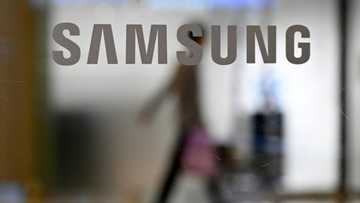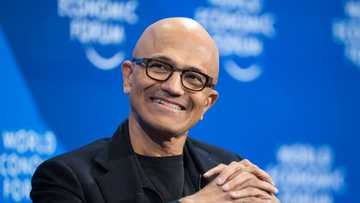China overtook Japan as world's top vehicle exporter in 2023

Source: AFP
China overtook Japan as the world's biggest vehicle exporter last year, data from the Japan Automobile Manufacturers Association showed Wednesday.
The Chinese auto sector has boomed in recent years largely because of massive investments in electric cars, an area where Japanese firms have been more cautious.
Japan shipped 4.42 million vehicles in 2023, the JAMA figures showed. That compared with 4.91 million exported by China, as reported by the China Association of Automobile Manufacturers this month.
China's customs bureau put the number even higher at 5.22 million, a huge year-on-year rise of 57 percent, with one in three of them fully electric vehicles.
China had already been exporting more vehicles than Japan on a monthly basis, but Wednesday's data confirmed that it was also number one for a whole year.
Unlike their Chinese counterparts, Japanese automakers including Toyota -- re-confirmed on Tuesday as the world's largest company by unit sales -- also make huge volumes of vehicles in other countries.
PAY ATTENTION: Сheck out news that is picked exactly for YOU ➡️ find the “Recommended for you” block on the home page and enjoy!
In 2022, vehicle production in Japan excluding motorcycles totalled 7.84 million units, but overseas production was almost 17 million units.
Instead of fully electric models, Japanese manufacturers have long bet on hybrids that combine battery power and internal combustion engines, an area they pioneered with the likes of the Toyota Prius.
Just 1.7 percent of cars sold in Japan were electric in 2022, compared with around 15 percent in western Europe, 5.3 percent in the United States and nearly one in five in China.
Japanese automakers have vowed to up their game, with Toyota aiming to sell 1.5 million EVs annually by 2026 and 3.5 million by 2030.
The company has also invested heavily in battery technology and is banking strongly on being able to mass-produce solid-state batteries.
This technology, though unproven so far on a major scale, means batteries will charge faster and give electric cars a much bigger range than conventional ones.
Chinese company BYD this month snatched Tesla's crown for most sales of all-electric vehicles, having capitalised on Beijing's strong government support for the burgeoning sector.
China's success in electric vehicles has also landed its firms in hot water with regulators in Western markets accusing them of anti-competitive practices like price-dumping.
European Commission president Ursula von der Leyen announced in September an investigation into Chinese state subsidies for electric cars.
The probe could lead the European Union to impose duties on those cars that it believes are unfairly sold at a lower price, thereby undercutting European competitors.
"It's kind of reminiscent of what happened to Japan in the 1980s, when they started exporting a lot of automotives," said Christopher Richter, an auto analyst at CLSA.
"So the Japanese solved it by starting (to build) a lot of factories overseas... They build overseas four times more than what they export," Richter said in October.
PAY ATTENTION: Donate to Legit Charity on Patreon. Your support matters!
Source: AFP




